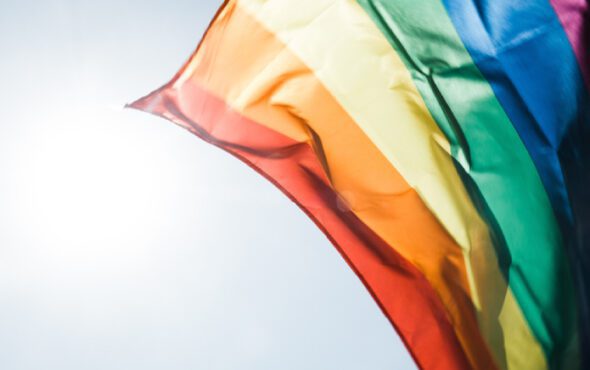
Organisers of an LGBTQ+ Pride event in Georgia said on Monday they were “just trying to survive” after violent groups opposed to a march stormed and ransacked their office in the capital and attacked activists and journalists.
Activists began five days of Pride celebrations last week and had planned a “March for Dignity” on Monday in central Tbilisi, shrugging off criticism from the Orthodox Church and conservatives who said the event had no place in Georgia.
But the march plan was disrupted by counter protesters before it could begin, forcing organisers to call it off.
“The situation is really bad,” Tbilisi Pride director Giorgi Tabagari told the Thomson Reuters Foundation by phone, saying members of his team had gone into hiding and were continually relocating in an effort to keep safe.
“We’re just trying to survive and to avoid the people that are wandering in the street,” Tabagari said, adding that he was “nearly killed” as a mob surrounded his car while he was leaving the United Nations building in central Tbilisi after a meeting.
Thousands of anti-LGBTQ+ demonstrators rallied outside the parliament building on Monday, after Church leaders urged supporters to “show the world that … any attempt to degenerate our people is utterly unacceptable”.
While the Church had called for a peaceful protest, the gathering – which took place just a kilometre down the road from the location of the announced Pride march – soon turned violent.
Protesters, mostly men including numerous priests, started gathering in the late morning, waving Georgian flags and chanting anti-LGBTQ+ slogans. Some burned a rainbow banner.
Video footage posted by LGBTQ+ activists showed protesters scaling their building to reach their balcony, where they tore down rainbow flags and entered the office of Tbilisi Pride.
Other footage showed a journalist with a bloodied mouth and nose and a man on a scooter driving at journalists.
A Thomson Reuters Foundation reporter saw a group of demonstrators chasing after a local reporter and two cameramen, who were then led away by police for their own safety.
After the Pride march was called off, some demonstrators staged a prayer outside a church facing the parliament building, while others danced to traditional music in celebration.
Tabagari said state authorities had “failed to protect us”.
The interior ministry said in a statement that police had opened an investigation into the violence against media representatives, as well as into ransacking of the Tbilisi Pride offices and the headquarters of an opposition movement.
“Police forces remain mobilised in the streets of the capital and continue maintenance of public order. We once again call on everyone to follow the requirements of the law,” the ministry said.
In the run-up to the march, the ministry urged Tbilisi Pride organisers to cancel the rally, saying it could not ensure safety – despite calls from the United Nations, the EU, local rights group and others that the march be allowed to go ahead.
Georgia has witnessed a cultural clash between liberal forces and religious conservatives over the past decade as it has modernised and introduced progressive reforms, though it remains mostly conservative on social issues.
Reporting by Umberto Bacchi
GAY TIMES and Openly/Thomson Reuters Foundation are working together to deliver leading LGBTQ+ news to a global audience.



